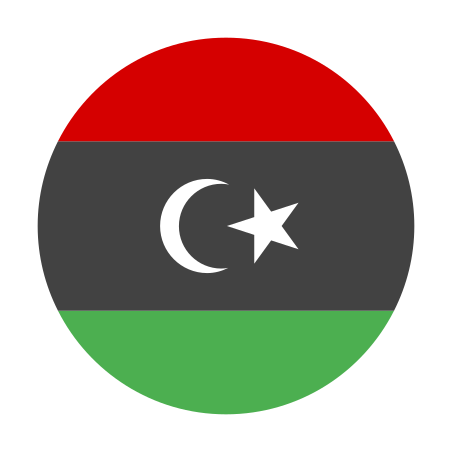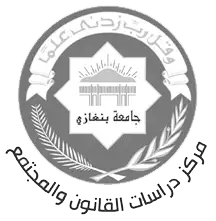Justice seeking and access to justice in Libya: Survivors of spousal violence in Benghazi
Women who suffer from spousal violence in Libya, may be reluctant to 'search for justice', and especially to involve formal state actors like police, prosecutors, or courts. They face intimidation, social pressure, stigma, and a justice journey riddled with obstacles. Nevertheless, Dr Jazia Shayteer shows how several women in Benghazi do try to hold their (ex-)husbands to account, and with what results.
This case study examines the justice journeys of five women in Benghazi who were beaten by their husbands. The five – Azza, Khadija, Khawla, Rima, and Fatima – are all Libyan women, Arab, Muslim, married to Libyan Arab Muslim men.
The causes of violence varied. In Azza’s case it began after the husband’s deception; in Khadija’s the husband had been reluctant to get married; in Khawla’s the husband was jealous. In Rima and Fatima’s case, the war was an important factor, after it displaced Fatima’s family, and brought unemployment and poverty to Rima’s family. Forms and degrees of violence also varied: Azza was threatened with kidnapping and rape, Khadija was insulted and humiliated, Fatima was humiliated causing her minor harm, while Rima and Khawla were seriously physically abused.
The journeys of these women on the road to justice were rich in steps and obstacles, and each individual journey is elaborated in the full case study. There were some notable similarities. For one, all women perceived the violence as harmful and a condemnable violation of their rights – not accepting the logic by some of their family members that a husband is entitled to discipline his wife, which may involve beating her. The women differed in whom they attributed most blame to. Some blamed their husband alone, others blamed their own father and mother for forcing them to marry or get divorced. Some women also apportioned blame to the wider structural conditions of war and economic hardship, which affected their marital relationships.
The women sought different remedies. Rima did not want a divorce and felt forced by her brothers to aim for a criminal penalty of her husband. Azza and Khadija only wanted to divorce, and Fatima and Khawla sought both a criminal penalty and divorce. Partly informed by these divergent goals, women chose divergent paths and mechanisms. Some opted for the informal path through family or tribe, while others preferred a swift turn to police and courts.
The husbands usually disputed the divorce application, and would only respond to it after making sure that it comes with the least losses (Azza’s case). Husbands objected to criminal charges, either by justifying the violence as a morally upright exercise of their right to discipline (Khawla’s case), or by levelling counteraccusations against their wives (Rima’s case).
Children played a pivotal role in this justice journey. Sometimes they figured as victims or as subjects of postdivorce disputing. In other cases, they were called on as eyewitnesses of the violence – which typically took place within the walls of the marital home. In some cases, women gave up their own demands for divorce or criminal punishment of the father, after they considered that this would jeapordise the interests of their children (Rima’s case).
Patriarchal cultural beliefs and practices pervaded these five cases. Fatima’s father refused to accept her plight to divorce her abusive husband, forcing her to endure all manner of spousal violence. Khadija felt great trepidation about exposing her marital problems, fearing particularly the shame that would befall her husband and, by extension, her children if she were to expose his homosexual interests. Azza’s family likewise was reluctant to expose the abusive husband’s shameful qualities out of fear that his tarnished reputation would affect them as well.
Patriarchy also influences how family members and justice providers respond to domestic violence. Brothers typically control women’s paths to justice, sometimes supporting their sisters and sometimes hindering them. Abused women are typically represented by male relatives when a tribe facilitates negotiations with the abusive husband. Even official justice providers like courts, deal with family communication and complaints with extreme sensitivity – cautious not to upset family ties or offend Arab-Islamic values. Outsiders to the family usually refrain from interfering in a domestic dispute – even if they witness violence – except when they are forced to intervene due to the gravity of the violence or when the violence extends beyond the marital home.
Various justice providers got involved in these five justice journeys, and a rough distinction can be maintained between ‘informal’ and ‘formal’ institutions. First and importantly, on the informal side the tribe often plays a distinctive role in domestic violence. In Benghazi, it remains a highly reliable tool for social control of husbands. It may oblige the husband to pay the wife “annusufa” (compensation in kind for the wife), or even to divorce her, and it may oblige the wife’s parents to give up their material rights in an effort to settle disputes between the families of the spouses.
Second, on the formal side are the police and prosecutor. Three of the five women turned to the police, which was always the first state institution they approached (Cases of Khawla, Fatima, and Rima). In all cases the investigating officer would open a report, hear the complaint, ascertain the desire of the concerned person to prosecute her husband, and refer her to the prosecutor. The prosecutor would then refer the wife to the forensic doctor and order the arrest of the husband in preparation for his pretrial detention on charges of mistreatment of a family member.
However, some women who go to the police and the prosecutor, later withdraw their complaint – often under pressure from their families. This in turn prevents the prosecutor from pursuing the prosecution proceedings (Fatima’s case), and then the conflict returns to the informal or ‘social’ track.
One of the obstacles faced by victims of spousal violence is their limited legal awareness. Women often do notknow their rights, nor who is able to safeguard them. They often choose the first lawyer they meet on their way, whether he is a friend of the family (Khadija’s case) or a public lawyer (Fatima’s case). These five women were unable to afford private lawyers, who they see as perhaps more active but expensive. In one case, the accused husbands turned to a private lawyer who was skilled but also dishonest and malicious (Khawla’s case). These five cases suggest that there are important differences between public and private lawyers, both in terms of
affordability and skill, which may influence access to justice.
Another obstacle women face has to do with proof. The occurrence of domestic violence can be proven by victim and witness testimonies, but in practice medical reports play a key role especially in establishing the gravity of the violence. But when a woman suffers domestic violence, she is often first brought to the hospital – where a medical report may describe her injuries. Only later will she go to the police and from there to the public prosecutor. The prosecutor, however, will not accept the hospital report, and instead require that the woman visits a forensic doctor who writes a new report. As time has passed between the incident, the hospital, the police station, the prosecutor’s office, and the forensic doctor, some of the injuries may have already healed. This in turn may negatively impact the woman’s case.
Critically, these five studied cases in Benghazi were not randomly sampled and are not representative of the whole of Libya. Yet they indicate just how difficult it is for women to speak up about domestic violence and to seek justice. These cases are part of a large number of cases which have reached formal institutions, yet many more are dealt with by informal justice providers only, and still more women are likely suffering domestic violence in silence.
This summary was published in Suliman Ibrahim, Bruno Braak and Jan Michiel Otto (2022)'The Long and Winding Road: Justice seeking and access to justice in Libya', Leiden/Benghazi: Van Vollenhoven Institute/Benghazi Centre for Law and Society Studies.




